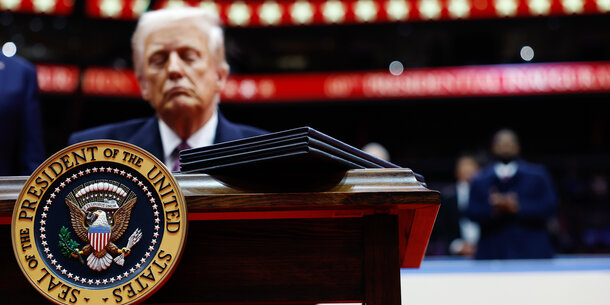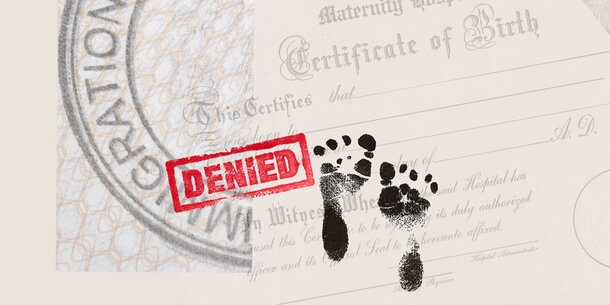Thomas Wolf, director of democracy initiatives in the Brennan Center’s Democracy Program, explains the problems with the Supreme Court’s originalist turn and how the Brennan Center is pushing back.
There’s a lot of talk about the Supreme Court’s use of originalism. Let’s start there. What is originalism, and why is it coming up now?
Originalism is a way of interpreting the Constitution that requires judges to follow its so-called original meaning at the time it was written. So it limits the constitutional rights and guarantees that we enjoy today to the views and values of the earliest generations of Americans. Originalism is not the only way to interpret the Constitution; it’s just one among many. It’s not even an especially time-tested one. Conservative movement lawyers unleashed it on the world in the 1980s as a way of advancing their policy goals under the guise of law. Justice Barrett’s ascent to the Supreme Court in the fall of 2020 resulted in a 6–3 conservative supermajority of justices who were sympathetic to this approach. Shortly thereafter, the Court started using originalism to upend the law — overturning Roe v. Wade, dramatically expanding gun rights, and barring affirmative action in higher education. The swiftness and seriousness of this originalist turn have made it a major concern.
Is originalism an inherently inappropriate way to interpret the Constitution, or is there something problematic about the way the Court is applying it?
Originalism was mainstreamed as an ideological project, not a scholarly one. It was aimed at yoking our constitutional rights to an extremely regressive political and social agenda. The simple fact that originalism forces courts to look to the past for binding rules for dealing with today’s questions accounts for some of its regressive impact.
However, conservative lawyers and judges have also distorted the past they use to support their originalist arguments, reading out of the historical record the progressive potential of the Constitution, certain moments in history, or older ways of thinking. Some of that distortion is willful. But it’s also the result of judges and lawyers being unequipped to make accurate statements about the past. They’re not historians, after all, and litigation is generally not the best way to arrive at conclusions about the past that historians would consider reliable. That has not stopped the Court, though, from claiming the mantle of “History” to justify its damaging decisions.
How is the Brennan Center involved in the debate over originalism?
Brennan Center experts have been responding to originalism for quite a while. For example, the scholarship that Brennan Center President Michael Waldman and Fellow Eric Ruben have produced over the years to address the Supreme Court’s radical expansion of gun rights grapples with some of originalism’s most serious inroads. The work that the Brennan Center’s staff do to develop and promote alternative views of the Constitution is also a response, in part, to originalism’s creep through the courts and the academy.
Our latest project, the Historians Council on the Constitution, carries on that Brennan Center tradition. One of the council’s goals is to address historical falsehoods coming out of the Court. But the council isn’t seeking just to correct the record. It is trying to change how history matters to the law by challenging the assumptions undergirding the Court’s originalist turn. Those assumptions range from the notion that the way things were should determine how they should be to the claim that originalist judges and lawyers are actually doing history and doing it accurately. There have been many criticisms of the Court’s originalism, but historians are particularly well placed to speak to it given how tightly the Court has wrapped its biggest originalist decisions in the robes of history.
How have historians been responding to the Court’s originalist turn?
Historians — and especially members of the Historians Council — are engaging more actively with the Court. They have filed briefs in major cases like Moore v. Harper (on the so-called independent state legislature theory), Students for Fair Admissions (on affirmative action), Bruen and Rahimi (on gun control laws), and Relentless (on Chevron deference). Their briefs have sought to bring rigorous historical perspectives to bear on these critical issues. But they have also called the Court to task for investing history with dispositive force and modeled different, more flexible ways to think about the past when deciding cases. Meanwhile, they have begun a public education campaign to expose how the Court is misusing and mischaracterizing history. I’d encourage folks to check out a panel we hosted this fall with the Atlantic’s Adam Serwer and several members of our council that delves into the many layers of problems with originalism — it’s an engaging presentation that makes the issues tangible and immediate.






